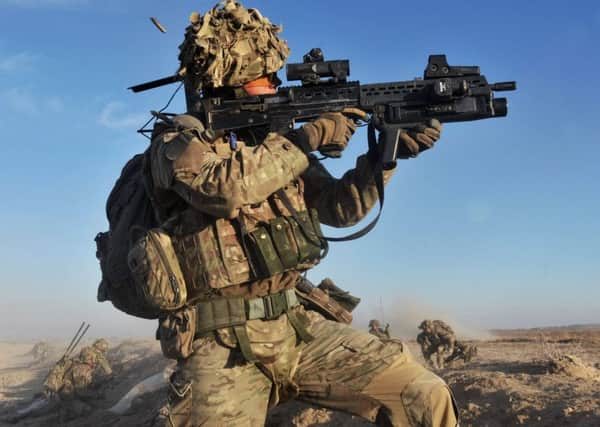Thousands of traumatised troops facing mental health war


That’s the call from military campaigners and mental health charity bosses today.
It comes amid mounting fears over the ‘unprecedented’ rise in the number of veterans battling post-traumatic stress disorder since wars in Afghanistan and Iraq.
Advertisement
Hide AdAdvertisement
Hide AdThe Ministry of Defence insists it is doing everything it can to support veterans.
But Sue Freeth, chief executive at Combat Stress, says urgent action is still needed to address the crisis.
‘We have seen a big rise in demand for our services over the past two years,’ she said.
‘In 2014/15 Combat Stress received an unprecedented 28 per cent increase in veterans seeking help for mental health issues.’
Advertisement
Hide AdAdvertisement
Hide AdThe worries come as fresh figures show thousands of serving military personnel are being treated for mental health disorders.
A total of 6,059 personnel from across the army, navy and RAF were seen by the MoD’s Specialist Mental Health Services in 2014/15, compared to just 4,556 six years earlier.
Of the most recent figure, some 4,858 were assessed as having a mental disorder – up from 3,199 in 2008/09.
Andy Smith is the chief executive of the Portsmouth-based campaign group UK National Defence Association. He said the government had a duty to provide proper welfare support for veterans.
Advertisement
Hide AdAdvertisement
Hide Ad‘There is mounting evidence that the government talks the talk but doesn’t walk the walk,’ he added.
‘Forces charities are trying their best to pick up the pieces but it is the government’s responsibility to look after our servicemen and women both during and after their service.’
The call for action comes as the wife of a Portsmouth sailor, battling PTSD, claimed her husband has been left to fend for himself after being medically discharged.
The woman, who asked not to be named, said her partner had a breakdown and left the navy three years ago and was still struggling to cope.
Advertisement
Hide AdAdvertisement
Hide Ad‘The victim remains the victim rather than having the support to overcome their issues,’ she told The News.
The MoD said a range of help was available, from peer support groups to specialist care. Those who are medically discharged can also use the Department of Community Mental Health for up to six months after leaving.
Likewise, when troops return from deployment, there is a decompression period to allow them to adjust.
An MoD official added: ‘The government is absolutely committed to the mental health of our armed forces and veterans.
Advertisement
Hide AdAdvertisement
Hide Ad‘Routine preventive measures while serving include resilience building and stress awareness training.
‘Where problems arise, a wide range of best practice treatments are available. And we work closely with other government departments and agencies so that there is continued effective treatment and support on return to civilian life.’
For help, call the 24-hour veterans’ mental health helpline on 0800 1381619 or see www.gov.uk.